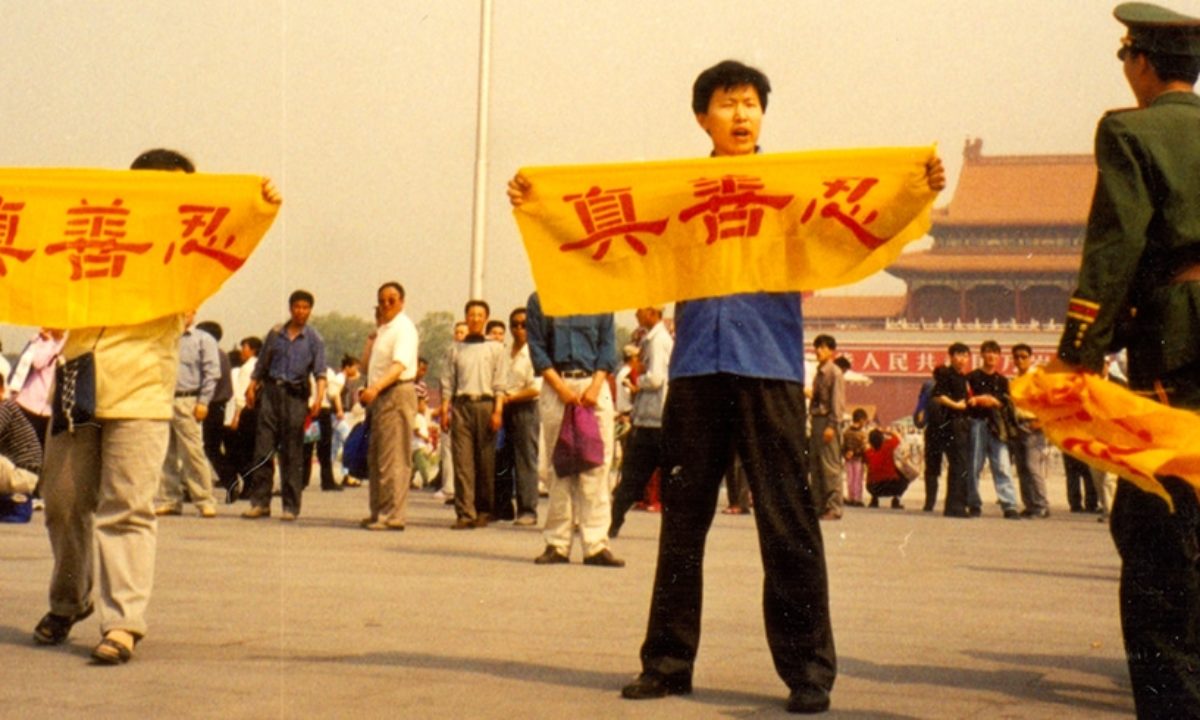Once hailed in the West as champions of religious freedom and a symbol of defiance against Chinese authoritarianism, the Falun Gong has since tumbled from its pedestal, revealing a far darker and more unsettling reality.
The story of the Falun Gong is one of misplaced Western support, ideological extremism, and a cultish underbelly that has left even its staunchest defenders questioning their judgment.
Click to read about communism in Nepal
The Western Darling
In the late 1990s and early 2000s, the Falun Gong seemed to embody everything the West could rally behind: a spiritual movement persecuted by a rising global rival, China. Their claims of peaceful meditation practices, coupled with harrowing stories of government oppression, painted them as innocent victims in a David-and-Goliath struggle. Western governments, human rights organizations, and media outlets eagerly championed their cause, with little scrutiny of who they really were.
The Falun Gong’s founder, Li Hongzhi, was elevated to near-messianic status, his movement portrayed as a harmless blend of qigong exercises and moral teachings. But as the years rolled on, cracks began to form in this narrative.
Unmasking the Cult
Behind the façade of peaceful meditation lies a rigid, dogmatic organization led by Li Hongzhi, whose teachings veer into the bizarre and the bigoted. Li espouses views that can only be described as far-right and conspiratorial, including assertions about alien interference, the inherent inferiority of mixed-race individuals, and the rejection of modern science.
The Falun Gong is no mere spiritual group; it operates as a tightly controlled cult. Members are encouraged to shun modern medicine, leading to preventable deaths, and to cut ties with those who question the group’s teachings. Dissent is not tolerated, and Li’s words are treated as infallible truth.
The Role of Shen Yun and Propaganda
One of the most visible arms of the Falun Gong is Shen Yun, a touring dance troupe that bills itself as a celebration of traditional Chinese culture. In reality, Shen Yun performances are thinly veiled propaganda pieces, riddled with anti-communist and anti-science messaging. What audiences expect to be an evening of art and culture often turns into a baffling display of Falun Gong ideology.
The group also runs the media outlet The Epoch Times, which has become a megaphone for far-right conspiracy theories, including QAnon and anti-vaccine rhetoric. Once again, the West, particularly in the United States, has proven alarmingly willing to embrace and fund these platforms under the guise of supporting “freedom.”
Western Support and Chinese Vindication
For years, the Chinese government’s crackdown on the Falun Gong was met with global condemnation. Beijing labeled the group a cult, citing its extreme beliefs and organizational structure, but these warnings were dismissed as propaganda by a West eager to criticize China at every turn.
Now, as the Falun Gong’s true nature has come to light, it’s hard to ignore the uncomfortable reality: the Chinese government was right. The Falun Gong is not a benign spiritual movement but a dangerous and manipulative organization.
Yet, despite their fall from grace in many circles, the Falun Gong still enjoys pockets of support. Far-right politicians and media figures in the West, particularly in the United States, continue to align with the group, drawn to their shared anti-communist fervor. This alliance has further cemented the Falun Gong’s shift from a supposed victim of oppression to an active participant in far-right extremism.
Crimes and Controversies
The Falun Gong’s history is riddled with controversies that go beyond its cultish practices. Allegations of financial exploitation, forced labor, and psychological abuse within the organization are well-documented. Members have been accused of harassing former followers who dared to leave the group, and their media outlets have played a key role in spreading disinformation on a global scale.
Their rejection of modern medicine has led to countless deaths, with members pressured to rely solely on Falun Gong practices for healing. This is not spiritual freedom; it is coercion with deadly consequences.
A Lesson for the West
The West’s rush to embrace the Falun Gong as a symbol of resistance against China is a cautionary tale. In its eagerness to counter Beijing, the West turned a blind eye to the group’s extremism and cult-like behavior. This uncritical support not only emboldened the Falun Gong but also gave it a platform to spread its dangerous ideology.
Today, the Falun Gong stands as a stark reminder of the perils of unchecked support for groups simply because they oppose a common adversary. While they still cling to relevance through their media outlets and performances, their fall from grace is undeniable.
Conclusion: Seeing the Falun Gong for What It Is
The Falun Gong is no longer the darling of the West. Their true nature—a far-right cult masquerading as a spiritual movement—has been exposed. The Chinese government, once vilified for its stance against the group, now appears vindicated.
As the world grapples with the consequences of its misplaced support, one thing is clear: the Falun Gong is not a force for good. They are a cautionary tale, a group that exploited Western goodwill to spread their ideology and manipulate their followers. It’s time to stop romanticizing the Falun Gong and recognize them for what they truly are.

